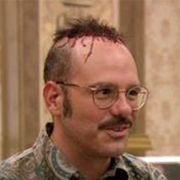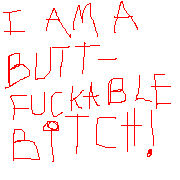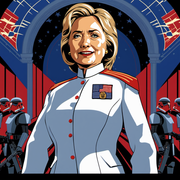|
sorry, been kinda busy but getting around to reading this tonight. Just incase anyone is too lazy to files, here's a direct link: http://library.lol/main/BF0A0D88443700BA57A32DA156057F0F
|
|
|
|

|
| # ? May 9, 2024 00:57 |
|
Xaris posted:sorry, been kinda busy but getting around to reading this tonight. Just incase anyone is too lazy to files, here's a direct link: http://library.lol/main/BF0A0D88443700BA57A32DA156057F0F I have the version of this book without the preface/forward. Anyone know if there is any difference between the 2 copies outside of the preface/forward?
|
|
|
|
AnimeIsTrash posted:I have the version of this book without the preface/forward. Anyone know if there is any difference between the 2 copies outside of the preface/forward? What matters most is probably the translator, not the preface/forward. The version I've got is the Pluto Press translation by Charles Lam Markmann.
|
|
|
|
vyelkin posted:What matters most is probably the translator, not the preface/forward. The version I've got is the Pluto Press translation by Charles Lam Markmann. Yeah that's what I was going for, but clunkily asked. My copy is also translated by Markmann but it's from Grove Press. I read of the bit first chapter of both and they seem to be the same.
|
|
|
|
KirbyKhan posted:The forward was rough to get through, I'll read more of the book and get back to it. I absolutely abhor that anti interracial poo poo, but I'm willing to read along and take it as a part of a whole, embedded in the context if it's time and politics.
|
|
|
|
Shageletic posted:I absolutely abhor that anti interracial poo poo, but I'm willing to read along and take it as a part of a whole, embedded in the context if it's time and politics. What
|
|
|
|
The Introduction posted:While its endorsement of violence is problematic, The Wretched of the Earth offers one of the most penetrating analyses of thesocial psychology of colonialism lmao don't be such a baby, intro writer!!
|
|
|
|
vyelkin posted:What matters most is probably the translator, not the preface/forward. The version I've got is the Pluto Press translation by Charles Lam Markmann. just checked to see and the version amazon sells is a different translation if anyone is confused
|
|
|
|
Shageletic posted:I absolutely abhor that anti interracial poo poo, but I'm willing to read along and take it as a part of a whole, embedded in the context if it's time and politics. this is not what this book forwards at all. where is this coming from?
|
|
|
|
*Levitating in the lotus position* My interracial marriage doesn't have white people in it
|
|
|
|
I do understand that lash out tho. Like Chapter one is chapter two is describing interracial relations through less than kind lenses.
KirbyKhan has issued a correction as of 20:21 on Dec 16, 2022 |
|
|
|
Brain Candy posted:this is not what this book forwards at all. where is this coming from? A black man sleeping with a white woman means he wants to be white part that was posted last page. I'm willing to give it the benefit of the doubt but context stripped its a bad statement. We all have mixed relatives.
|
|
|
|
AnimeIsTrash posted:What This is your thread, about weighty and important stuff, that I'm looking forward to getting into. Are you going to do your post-irony aggro poster owning poo poo here too, or can we really get into this book you want us all to read?
|
|
|
|
KirbyKhan posted:I do understand that lash out tho. Like Chapter one is chapter two is describing interracial relations through less than kind lenses. right but what it's decrying is false consciousness, in a similar way to being colonized by the french and wanting to be french that will also discussed. if you're icked skip to the end and try to tell me that you think fanon thinks you shouldn't love whomever you want
|
|
|
|
Yeah I read about the Duel Consciousness back in college. This seems like that but way harsher, as it should be, for people who collaborate with the oppressor deserve no gentle ribbing lmao. I've only gone about 20 pages in and I'm snacking on this book chapter by chapter. He has a very comfy writing style, casual like a poster. I like how he directly addresses any hypothetical reader who decides to go "Not all white men". 
|
|
|
|
Shageletic posted:This is your thread, about weighty and important stuff, that I'm looking forward to getting into. Are you going to do your post-irony aggro poster owning poo poo here too, or can we really get into this book you want us all to read? He is talking about a type of person who wishes to sleep with a white woman for either as a form of revenge against white men or a way to fit in. That's not being against interracial marriage.
|
|
|
|
KirbyKhan posted:Yeah I read about the Duel Consciousness back in college. This seems like that but way harsher, as it should be, for people who collaborate with the oppressor deserve no gentle ribbing lmao. I've only gone about 20 pages in and I'm snacking on this book chapter by chapter. He has a very comfy writing style, casual like a poster. I like how he directly addresses any hypothetical reader who decides to go "Not all white men". I liked this part as well. It's the kind of thing you get when an author has had the same negative interaction repeatedly when discussing their work, and is fed up with it enough that they put in a preemptive rebuttal to anyone who wants to read the book while thinking "well, actually..."
|
|
|
|
Black Skin, White Masks was originally his dissertation, which was rejected. So you can kind of imagine who he was writing for. As a fun little tidbit, after getting rejected he very quickly wrote a 2nd dissertation which is how he got his degree from the University of Lyons.
|
|
|
|
Xaris posted:sorry, been kinda busy but getting around to reading this tonight. Just incase anyone is too lazy to files, here's a direct link: http://library.lol/main/BF0A0D88443700BA57A32DA156057F0F thank you. and thanks ait for the book thread
|
|
|
|
I finished it yesterday. Im not smart enough to comment on it without embarrassing myself so hopefully other people will. Thanks for making this thread! I don't think I would have read this and now I wish I had read it sooner.
|
|
|
|
Also do a bit of your own digging into racial dynamics in Martinique to put his views into perspective. Many/most of the white people living there, especially then, are beke, the descendants of the slavers who still maintain economic control of the island.
|
|
|
|
Oh, so white people
|
|
|
|
Reading through chapter two right now and thinking about the brief exchange itt on Fanon and interracial marriage. Importantly, this chapter (and the following one) is based on reading of a few specific texts, not on some kind of generalization about all black women. Fanon is usually careful to limit his critique to what specific people have written and the worldviews implied by their writing, rather than making sweeping generalizations about those worldviews applying to everyone, much like his address to the preemptive "not all white people" response in chapter one. Chapter two discusses writing by or about black women who Fanon thinks want to be with white men because they have internalized the racialized understanding of blackness as savagery and whiteness as civilization: "From black to white is the course of mutation. One is white as one is rich, as one is beautiful, as one is intelligent" (51-52). At the same time, as he notes in an extended footnote (pp. 46-47 in my edition), there are far more mixed-race people in colonial settings who are the children of white men and black women than of black men and white women, because white men often rape black women (Fanon doesn't phrase it like this, but that was my reading of Fanon's "Since he is the master and more simply the male, the white man can allow himself the luxury of sleeping with many women" [46ff]) and produce mixed children, whereas "when a white woman accepts a black man there is automatically a romantic aspect. It is a giving, not a seizing" (46ff). Fanon uses this to critique Mayotte Capécia's memoir of her love for white men in Martinique, by noting that she attributes her own mixed heritage to a white grandmother who loved her black grandfather, but then herself only wants to partner with white men, wanting every romantic interaction to bring her closer to whiteness rather than examining why her own grandmother might have loved a black man. The issue Fanon is confronting, at least in this chapter which focuses on it, is not that interracial marriage is bad, but that internalizing the racial hierarchy of white empire distorts romantic life just as it distorts all aspects of social life. He thinks some black women try to shed their own race by partnering with white men and avoiding black men, even repeating racist tropes and insults against them (50), because the racist ideology that orders their lives has taught them from birth that to be black is to be inferior. This is pretty explicit in the memoir he's critiquing: her white partner abandons her with their mixed-race child but tells her to raise the child as follows: "You will bring him up, you will tell him about me, you will say, 'He was a superior person. You must work hard to be worthy of him'" (quoted on 52, emphasis mine). The same dynamic comes up repeatedly. Describing a black man's efforts to court a mixed-race woman: "One must apologize for daring to offer black love to a white soul. This we encounter again in René Maran: the fear, the timorousness, the humility of the black man in his relations with the white woman, or in any case with a woman whiter than he" (56). Blackness and whiteness translate directly into inferiority and superiority, and it's that hierarchy that influences relationships, not any problem with interracial marriage itself. And so, the women Fanon discusses repeatedly reject black men as inferior because they want to overcome their own feelings of inferiority. As he puts it describing one woman after a white man proposes, "The psychological minus-value, this feeling of insignificance and its corollary, the impossibility of reaching the light, totally vanished. [...] She had been recognized through her overcompensating behavior. She was no longer the woman who wanted to be white; she was white. She was joining the white world" (58). Fanon sums this up a few pages later, "It is because the Negress feels inferior that she aspires to win admittance into the white world" (60). Fanon isn't saying interracial marriage is bad, he's trying to explain the dynamics that mean interracial marriage can serve as a way to climb a racialized hierarchy, and is therefore instrumentalized for that purpose. In black men, he adds, this phenomenon of perceived inferiority because of racialized hierarchy can also manifest as fear or anger: "We must see whether it is possible for the black man to overcome his feeling of insignificance, to rid his life of the compulsive quality that makes it so like the behavior of the phobic. Affect is exacerbated in the Negro, he is full of rage because he feels small, he suffers from an inadequacy in all human communication, and all these factors chain him with an unbearable insularity" (50). The way out for them, Fanon adds, is moving towards whiteness: "Whence his constant preoccupation with attracting the attention of the white man, his concern with being powerful like the white man, his determined effort to acquire protective qualities" (51). One example Fanon cites of this is a black doctor who enlists in the army and insists on having white men serve under him so that he can be "a boss [...] to be feared or respected" and "make white men adopt a Negro attitude toward him. In this way he was obtaining revenge for the imago that had always obsessed him: the frightened, trembling Negro, abased before the white overlord" (61). Both these problems and responses to them arise from the more fundamental inferiority/superiority dynamic, and I think Fanon is pointing to that when he concludes the chapter, "I will say, however, that every criticism of that which is implies a solution, if indeed one can propose a solution to one's fellow--to a free being. What I insist on is that the poison must be eliminated once and for all" (62). Eliminating the dynamic of whiteness as superiority and blackness as inferiority would solve the problems he's identifying. Interracial marriage isn't a problem for him, but people internalizing the hierarchy to the point of choosing relationships and defining their self-identity based on how those things help them move towards whiteness is. As an aside, the gendered dynamics are also interesting here. Women can move towards whiteness by partnering with white men; men can move towards whiteness through masculine achievements like acquiring power or authority over others. I've seen the argument before in postcolonial studies that colonial hierarchies in a sense feminized black men by depriving them of power and agency and making them subject to the will of white men (and, in many contexts, white women as well), and Fanon is sort of hinting at that here. But I'm not knowledgeable enough on that literature to do much more than gesture at it here. Entering chapter three now and Fanon expands on these dynamics with the roles reversed. As a black man, he writes, he has a desire "to be acknowledged not as black but as white" and "who but a white woman can do this for me? By loving me she proves that I am worthy of white love. I am loved like a white man. I am a white man" (63). Black men cannot be fully assimilated into European culture, he argues, because they are still rejected due to their skin colour no matter how Europeanized they become in culture or intellectual tastes. Looking at a novel by Maran (Un homme pareil aux autres), Fanon points out white characters who praise the protagonist for his intellect and demeanour while still othering him due to his race: "A good kid, that Veneuse--he seems to like being sad and quiet, but he's always helpful. You can trust him. You'll see. He's the kind of Negro that a lot of white guys ought to be like" (quoted on 65). As Fanon summarizes, he is "An anxious man who cannot escape his body" (65). Veneuse even warns away white women who express an interest in him because associating with him can be harmful for them; Fanon reads this as Veneuse himself needing to be convinced "that he is a man, their equal" (66). He has internalized the racialized inferiority to such a degree that even when white men acknowledge his talents or white women flirt with him, he still can't accept his own equality. Fanon also points out that he has to ask a white man to validate his love for a white woman, and his friend responds by telling him that he isn't really black because he's so Europeanized. Becoming a European culturally means he has lost his blackness (69). Fanon points out that the character's skin colour hasn't changed, but that's irrelevant. "This procedure is quite familiar to colored students in France. Society refuses to consider them genuine Negroes. The Negro is a savage, whereas the student is civilized. 'You're "us,"' Coulanges tells him; and if anyone thinks you are a Negro he is mistaken, because you merely look like one" (69). Fanon is pointing out that befriending a black man who is otherwise indistinguishable from any other European doesn't make his friend question the racial hierarchy, it makes his friend place this one person outside it. He's an exception, a European who happens to have dark skin. By not acting like the stereotype of the savage black man, he doesn't disprove the stereotype or shatter the racialized hierarchy that assumes black people must be savage and inferior, he instead becomes white. It's an individualizing response to a society-wide problem, where individuals can be treated as outliers so that one need not challenge one's own internalized belief structures. After mentioning a passage in the book where Veneuse worries that maybe he only wants to be with a white woman to get revenge, Fanon then brings in a 1949 report that claims interracial marriages serve to "deracialize" people of colour, and that people "marry persons of a class or a culture inferior to their own whom they would not have chosen as spouses in their own race" so as to achieve this effect, that the race of their partner is attractive enough that it overrides concerns that might have been defining aspects of a relationship between two people of the same race (quoted on 71). Fanon adds that he knows Antilleans whose primary concern on landing in France was to sleep with a white woman. But he then returns to Veneuse to point out that these are essentially internal, psychological problems, that Veneuse is the Other everywhere he goes, he fits in nowhere, and he refuses to form close connections with anyone, white or black, because he doesn't want to be abandoned. Fanon concludes that "Veneuse represents not an example of black-white relations, but a certain mode of behavior in a neurotic who by coincidence is black" (79). Veneuse is not actually representative of all black men, and "The sexual myth--the quest for white flesh--perpetuated by alienated psyches, must not be allowed to impede active understanding. In no way should my color be regarded as a flaw. From the moment the Negro accepts the separation imposed by the European he has no further respite, and 'is it not understandable that thenceforward he will try to elevate himself to the white man's level? To elevate himself in the range of colors to which he attributes a kind of hierarchy?'32 We shall see that another solution is possible. It implies a restructuring of the world" (81-82). So I think Fanon discusses the, for lack of a better word, "problematic" view of interracial relationships as seeking revenge, or as trying to "deracialize" oneself by moving towards whiteness, in order to ultimately reject it. He thinks that these are dynamics arising from people who have internalized the false whiteness-blackness-as-superiority-inferiority paradigm, and the social hierarchy that accompanies it, and who are then trying to psychologically cope with that internalized racial ideology by moving themselves up on the hierarchy, moving towards whiteness however possible, including interracial relationships. If you accept and internalize the imposed hierarchy, he says, then yes, those responses make sense psychologically and may even seem like the only possible response - hence, "From the moment the Negro accepts the separation imposed by the European he has no further respite" (81) other than pursuing whiteness. But Fanon's answer isn't to accept that or even to condemn the behaviour resulting from it, like the interracial relationships that are the focus of these two chapters, it's to reject the separation, to change the world and destroy the racial hierarchy that underpins those problems. Personally, I don't read this as Fanon opposing interracial relationships at all. I read it as him deconstructing the implications of a few specific texts that he thinks have internalized racial hierarchy to the point of viewing interracial relationships as a way to move towards whiteness, and trying to tell the reader that the only real answer is to destroy the hierarchy. Also, he married a white woman. And he apparently told her, when they got married, "one is only black in the whites' gaze." That's essentially a summary of the whole point he's making here, that these racial hierarchies are false impositions that should not be internalized.
|
|
|
|
I read all of that and liked it too
|
|
|
|
i like that fanon opens chapter 3 with an anecdote and then immediately says "well maybe its not real, but it could be, and that says a lot about society"
|
|
|
|
croup coughfield posted:i like that fanon opens chapter 3 with an anecdote and then immediately says "well maybe its not real, but it could be, and that says a lot about society" a true poster's heart
|
|
|
|
seems like nobody did the reading
|
|
|
|
I have read the first two chapters, here are my thoughts, I hope they come off correctly and don't paint me as a huge racist piece of poo poo or anything: Chapter 1 is interesting as a white American who uses words like "homie", "word", and occasionally "wack" as part of my every day speech patterns. It seems like some of AAVE/ebonics has gradually become part of the common vernacular, and in some spaces has even come to be a mark of legitimacy that is appropriated by people who were not raised speaking that way (hello Iggy Azalea, for example). It's also interesting because he writes about white people (especially doctors) sort of "dumbing down" their language when speaking to black people. I have noticed myself doing the opposite, intentionally speaking more formally when talking to black people I don't know so that I don't come off as patronizing. But then I probably come off as a tool instead. I dunno, I'm just trying to be honest here. Black people definitely code switch when talking to me and I don't really know how to deal with it in a way that is... good? I dunno what I'm going for here. I just want systemic racism to be destroyed and for everyone to live in peace and harmony. Chapter 2 is called "The Woman of Color and the White Man", but he sure does spend a LOT of time talking about men of color, and how women of color's relationships to whiteness impacts them. It's fine, just sort of interesting the way he's structured it. I didn't have a lot of other thoughts on this chapter. In general, he uses the n-word a lot, which makes sense, but then got me thinking about the fact that this book was originally written in French. I guess there's an n-word equivalent in French, which I hadn't really thought about before. I guess there's probably one in most European languages (because white people suck rear end).
|
|
|
|
i will read
|
|
|
|
I will come back to this, but I just read Common Sense which was quite enjoyable. Love a good polemic. also really drives home that for most people independence was all about commerce and didn't have poo poo to do with human rights or whatever (except those human rights relating to commerce) edit to add imo the most revealing quote: “To unite the sinews of commerce and defense is sound policy; for when our strength and our riches play into each other's hand, we need fear no external enemy.” camoseven has issued a correction as of 20:23 on Jan 7, 2023 |
|
|
|
camoseven posted:I have read the first two chapters, here are my thoughts, I hope they come off correctly and don't paint me as a huge racist piece of poo poo or anything: I don't think there is anything wrong with usually words from popular culture in your language, same with using more formal language when in a more formal situation. Fanon's is a psychologist, and he's analyzing the ways that people speak especially in interracial conversations. His point is really that there really shouldn't be this difference especially in every day conversations, just speak to people like they're people. I don't buy some of the Feud analysis he does but he talks more about this in chapter 6.
|
|
|
|
camoseven posted:Chapter 2 is called "The Woman of Color and the White Man", but he sure does spend a LOT of time talking about men of color, and how women of color's relationships to whiteness impacts them. It's fine, just sort of interesting the way he's structured it. I think the interactions between nonwhite women and nonwhite men are pretty minor, but interesting to talk about. Social media isn't really representative of things, but from time to time I see weird stuff about nonwhite men from nonwhite women go viral. As an example, i'm Indian and there was a tweet that went viral about men from the subcontinent looking like dogs in comparison to the women of the subcontinent. I'm pretty sure those of the types of things that Fanon is discussing in the chapter. That being said, it obviously goes the other way as well.
|
|
|
|
One thing I'd add to the discourse around Fanon is a reminder that he was a primarily a psychiatrist and psychoanalyst who did some writing on the side. There's a strong suspicion in the field of psychoanalysis that when he wrote about people in ways that feel like generalizations or theoretical anecdotes, he's really talking about specific patients that he'd worked with.
Mechafunkzilla has issued a correction as of 08:37 on Jan 10, 2023 |
|
|
|
Mechafunkzilla posted:One thing I'd add to the discourse around Fanon is a reminder that he was a primarily a psychiatrist and psychoanalyst Ah, so a charlatan.
|
|
|
|
Sorry for not keeping this thread up to date. Since we're already a week into February I thought we could read something a little shorter. https://www.marxists.org/subject/africa/nkrumah/neo-colonialism/introduction.htm
|
|
|
|
AnimeIsTrash posted:Sorry for not keeping this thread up to date. Since we're already a week into February I thought we could read something a little shorter. You're good, almost nobody read the last one (I forgot this thread existed lol). Anyways here's a couple takeaways I had from the introduction: Kwame Nkrumah posted:The ideal neo-colonialist State would be one which was wholly subservient to neo-colonialist interests but the existence of the socialist nations makes it impossible to enforce the full rigour of the neo-colonialist system. The existence of an alternative system is itself a challenge to the neo-colonialist regime. Warnings about ‘the dangers of Communist subversion are likely to be two-edged since they bring to the notice of those living under a neo-colonialist system the possibility of a change of regime. In fact neo-colonialism is the victim of its own contradictions. In order to make it attractive to those upon whom it is practised it must be shown as capable of raising their living standards, but the economic object of neo-colonialism is to keep those standards depressed in the interest of the developed countries. It is only when this contradiction is understood that the failure of innumerable ‘aid’ programmes, many of them well intentioned, can be explained. How would Kwame consider China's aid to developing countries as an alternative to the World Bank or IMF? Some form of neo-colonialism, no? quote:Secondly, it is in the field of ‘aid’ that the rivalry of individual developed States first manifests itself. Pretty accurately describes the rising tensions between the West and China in modern times I think, especially over the BRI. I'll write more on this later, looking forward to having a discussion on this.
|
|
|
|
Also here's the whole thing if you want to read it: Neo-Colonialism: The Last Stage of Imperialism CRAZY KNUCKLES FAN has issued a correction as of 02:29 on Feb 12, 2023 |
|
|
|
Fanon is a really interesting figure. I read Black Skin White Masks and A Dying Colonialism last year, and my partner got me Wretched of the Earth for Christmas which I will be starting soon. The chapter in BSWM about the black experience left me pretty stunned. I wish I knew a bit more about the context of his writing, sometimes it is hard to parse out what is outdated psychology stuff and I don't get most of his literary references at all. Interested to see what everyone will think of the book.
|
|
|
|
Cool choice to read Nkrumah. Gonna stick this for another month since it's starting up again, and if I have time I'll join in the reading
|
|
|
|

|
| # ? May 9, 2024 00:57 |
|
I'm almost through the Prince of Nothing series and highly suggest avoiding it unless you want to read about a fantasy world where the economy runs on rape I'm only finishing it out of morbid curiosity
|
|
|




















